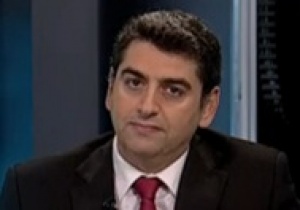Breaking Travel News interview: Dr Nikolas Hourvouliades, tourism special advisor, Central Macedonia

Already an established tourism hotspot for the southern Balkans, Central Macedonia is attempting to boosts its reputation across Europe.
Here Breaking Travel News sits down with Dr Nikolas Hourvouliades, tourism special advisor to the governor of Central Macedonia to discuss what the aspiring province can do to achieve its goals.
Breaking Travel News: Perhaps we could just start with a little understanding of what is on offer in Central Macedonia, for those who have not visited?
Dr Nikolas Hourvouliades: We are situated in the northern part of Greece; we have the classic sunny beaches, what we believe to be the best beaches in the country.
The region of Chalkidiki is perhaps most famous to the UK market, which is virtually given over to tourism, while we also have the beautiful city of Salonica, which is also very popular.
There is a lot of cultural heritage in our region, right from Alexander the Great through the Byzantine era. We also offer religious tourists a great number of churches, dating back hundreds of years.
At present we are also seeking to build our reputation for MICE tourism, we are looking at developing facilities in this area.
BTN: Greece is obviously already a very established destination. How do you hope to benefit from its role in European tourism?
NH: A great deal of visitors from the UK head for the islands in the south of Greece – Crete, Rhodes, and Mykonos, these are already very established destinations.
We are seeking to compete with them, but also to offer something more, something different. As well as Athens, which is also obviously very popular.
At present only a very small number of visitors head to the north of the country. This is one of our greatest strength, we believe, as far as tourism development is concerned.
Tourism is already our major industry, but the land is still virgin, ready for development. The last two or three years have been critical for Greece, but tourism, while not increasing, has at least be stable.
There are a lot of ways people can travel around Greece: once you are inside the country, if you want to divide your trip, Greece is very small, you can travel around.
From the north to the south of the country, it is under an hour. A train, four hours.
You can stay three of four days in one place, three or four days with us. There is a lot of possibility to combine two types of holiday, sun for the first days and then on to something more cultural later on.
Our cuisine is also world famous, while we are also considered the region for partying. Salonica is very vibrant. This is good for the British!
BTN: In what ways can the government of Greece assist you in this project?
NH: The government has been keen to develop this sector.
We are looking to build the region. That is why we are here in the UK, to build our contacts with operators here in the UK, to listen, to learn, and to understand what it is we can do to assist in the development of tourism in Central Macedonia.
I am here to talk to the professionals. We are a state organisation, we are not tour operators, we are not investors, nor hotel owners. We play the role of the go-between; assisting professionals in the Greek market reach those here in the UK.
We are also lucky with our location. People come to us from the south of the country, as well as from the southern Balkans. They know we are the capital for the people from the heart of the Balkans, those who just arrive for the weekend.
People are very familiar with us. We are the most advanced country in the region, despite our present situation. This helps us attract visitors from around the area.
BTN: Where is Greece on its road to recovery?
NH: The Greek people understand there are many things which have to be changed. Each family, even each individual is having a very hard time.
The problem is, everything in Greece has a lot of bureaucracy. It takes a lot of time to make changes. Too long. Even if you have a lot of good ideas, you cannot expect much from the public sector.
The private sector must take the initiative. We are not here to suffocate the private sector, just to support it. This is an area all parts of the government are interested in.
We say: “There is something good in everything that is bad”. Mothers say that to their children. So, yes, there are a lot of things which are bad in this crisis.
But at least we have realised that we must reengineer the way the state operates.
That is a good thing for Greece. At least it cannot get any worse!
I felt last year we were coming to the end of the crisis. The same again this year. It is always next year. Maybe this year it really is? We have to stay positive.
Greeks are not people to lose hope. We still look to enjoy our everyday lives.
BTN: Do you think the situation deters tourism?
NH: This is one of the most important things to understand: you see the pictures all around the world of people rioting, but just a street away, people are sitting drinking coffee.
We are one of the safest countries. You can walk anywhere at 03:00 and there will be no problems. Not even Athens is unsafe, despite what you see.
Interview: Chris O’Toole

